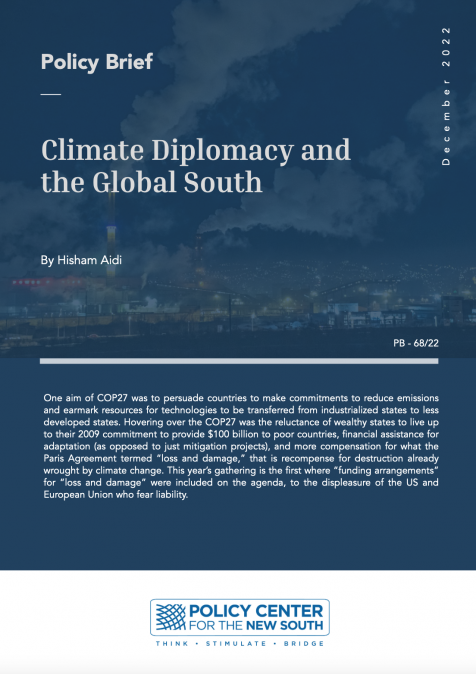Dans le monde contemporain, la communication médiatique joue un rôle crucial dans la promotion du développement durable et la sensibilisation environnementale. Les médias, qu'ils soient traditionnels ou numériques, sont des outils puissants pour informer, éduquer et mobiliser les individus autour des enjeux environnementaux. En utilisant une variété de formats tels que les articles, les reportages, les vidéos et les réseaux sociaux, la communication médiatique peut atteindre un large public et influencer les attitudes et les comportements en faveur de pratiques plus durables.
Speakers

Ahmed Ouhnini
Economist, Policy Center for the New South
Ahmed Ouhnini is an Economist at the Policy Center for the New South. His research area covers agricultural economics, human and social development. Previously, he has worked as a researcher at the Paris School of Economics (PSE) and has also a record of working in consulting services in Morocco. Ahmed holds an engineering Diploma in Agriculture and Rural Development from the National School of Agriculture of Meknes and a Master’s Degree in Law, Economics and Management from the Paris 1 Pantheon Sorbonne Institute of Development.
...









